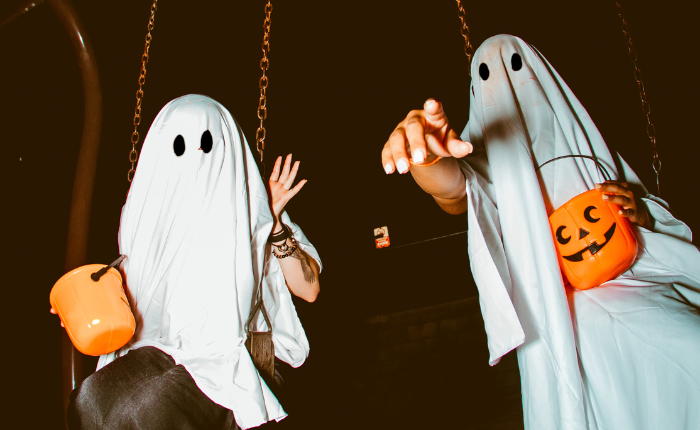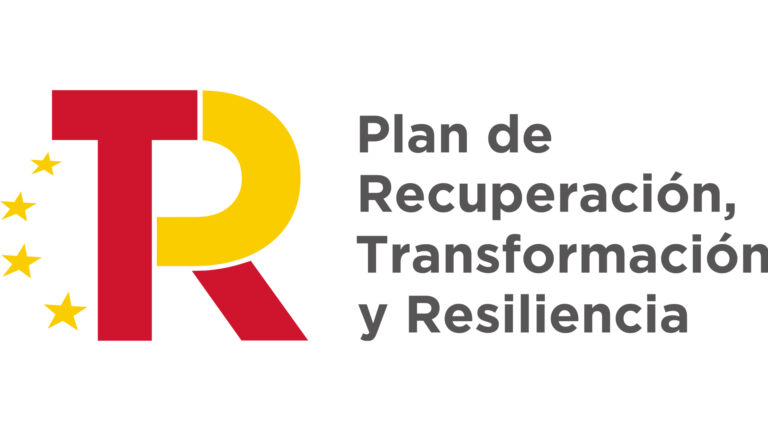Did you know these Spanish expressions related to Halloween?
Halloween, an increasingly popular tradition in different corners of the world, is now getting closer. Its name comes from the English phrase “All Hallow’s Eve” which is the eve of the Day of the Dead. Although November 1 is when we visit our deceased loved ones, it is said that the day before (i.e. October 31) they are the ones who come down to earth to visit their families. This is why people associate the holiday with terrifying elements and icons such as ghosts, skeletons and bats. Furthermore, cinema and pop culture have made us associate the holiday with monsters and iconic horror characters.
In today’s post we would like to share some Spanish expressions related to Halloween that Spanish native speakers use all year round. They may sound terrifying, but their meaning turns out to be fun and different from what is being said literally. Let’s get started!

Estar curado de espanto: This expression contains the verb curar, which means ‘to heal’. Estar curado de espanto (or literally in English ‘be healed from fear’) means that this person has already been scared or impressed so many times in their life, by the many things they have seen, that nothing impresses them anymore, or in other words, he is “healed” (curado). It can be used when seeing things that are incredible or out of the ordinary, but that no longer generate any emotion in you. Example: Mira esos perros ¡llevan ropa puesta! – Aaah, pero es normal, ya estoy curado de espanto.
Ser una tumba: If you can “be a grave” (tumba), it means that you are a person who knows how to keep a secret very well and will not share it with anyone else. Example: Cuéntame todo con confianza, no te preocupes, yo soy una tumba. A person can also ‘take the secret to the grave’ or llevarse el secreto a la tumba if they died and never revealed the confidential or secret information they knew. Example: nunca dijo quién era el padre de su hijo, se llevó el secreto a la tumba.
Estar en los huesos: There are times when we worry about the health of those close to us and we want them to look good. When someone looks very, very thin, it is exaggeratedly said that está en los huesos. Example: hijo, tienes que comer algo, estás en los huesos.
Andar como zombie: Horror movies and stories have taught us that zombies are living dead who walk slowly and babble. If you feel tired, you haven’t slept well or you simply didn’t have a good night, then you will feel like andas como zombie. Example: Me he pasado la noche sin dormir por estudiar para el examen, ahora ando como zombie
Costar un ojo de la cara: There are times when it takes us a long time to raise money to buy what we want, because its price is very high. Other times we are broke after buying a fancy car, house or the latest cell phone. It is here, when something is too expensive, where you can say that it cost you un ojo de la cara – y la otra mitad (and half the other) if you want to continue exaggerating. Example: ¡Al fin tengo el último iPhone! Pero me costó un ojo de la cara […¡y la mitad del otro!]
Morirse de (miedo, risa, hambre, etc): In Spanish you can die of many things in a figurative sense. It is used to exaggerate the emotion you are feeling, if you think it is very intense. Example:ese chiste fue muy bueno, nos morimos de la risa. No he comido nada en todo el día, me estoy muriendo de hambre.
Poner la piel de gallina: We know that chicken skins look similar to when small bumps appear on the surface of your skin as the hairs become erect when in contact with the cold or a feeling of danger, fear or great shock. If this has happened to you, then you get piel de gallina. Example:esa película de terror me dio mucho miedo, se me puso la piel de gallina.
¿Qué clase brujería es esta?: This expression is used when a phenomenon occurs that you cannot explain. Your TV suddenly turned off, your car won’t start, or there are strange lights in the sky. Example: La sopa me quedó de un color rojo y no le puse nada distinto. ¿Qué clase de brujería es esta?
Calabaza calabaza, cada uno para su casa: this expression is very common in Chile, but also in other Latin American countries. It is an informal expression, used among friends or relatives, when a party, event or celebration is over and you feel it’s time to go home. Most time it is not even necessary to say the complete expressions, as others will know how it ends. Example: ya bebimos todo, ahora ¿qué hacemos? Yo considero que calabaza calabaza (and the person listening knows that the expression ends as ‘cada uno para su casa’).

If you liked these Spanish expressions related to Halloween, do not hesitate to use them in your daily life. It makes communication feel more fluid and at the same time, you will make others laugh, since it is difficult for a person who does not speak Spanish as their mother tongue to know them. So if you are a Spanish learner, surprise your Spanish-speaking friends with these phrases. ¡No te mueras de vergüenza! 😜
And one more thing: you can download an infographic that we have designed with great love with all these Spanish expressions related to Halloween in the following link.

María José San Martín
Profesora en prácticas de Entrelenguas



